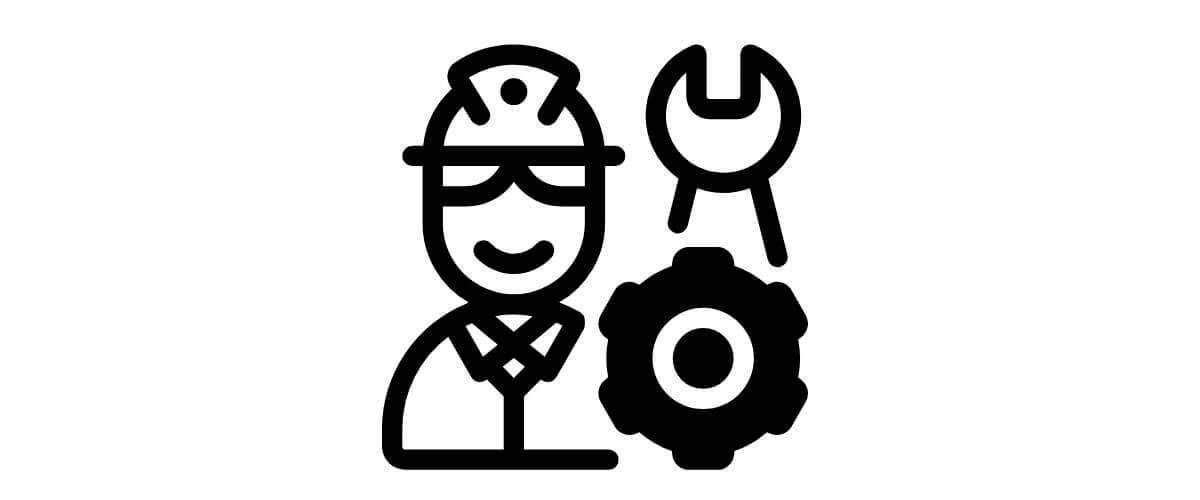
Aerospace technicians hold a critical role in ensuring compliance for spacecraft, missiles, and aircraft. If you’re interested in learning computer-based processes to maintain the safety and overall design of various aircraft equipment, this may be a terrific role to consider.
Most aerospace technicians work in laboratories, industrial plants, or manufacturing facilities to work hands-on with the parts or manufacturing of aircraft and spacecraft. Potential responsibilities include testing internal systems, repairing and installations, and checking for quality assurance.
Here, we’re discussing what it takes to become an aerospace engineering and operations technician in the engineering space. This particular role provides a wide range of exciting opportunities for folks that are passionate about operating and maintaining the quality of spacecraft, missiles, and aircraft.
If you’re seeking more information about becoming an aerospace technician, keep reading this in-depth guide.
What Does an Aerospace Technician Do?
Aerospace technicians work closely with aircraft, missiles, and spacecraft. If you have a passion for working with aircraft, performing necessary installations and repairs, and understanding the ins and outs of aircraft computer systems, then this job could be a great fit for you.
Aerospace technicians support the manufacturing and testing of aircraft, missiles, and spacecraft, including planes, rockets, and helicopters. You will need to feel comfortable working with this particular high-tech equipment and understand the design specifications.
You will also need to become well-versed in various engineering and mechanical practices.
Job Duties
If you’re interested in becoming an aerospace technician, you may be able to start learning as early as high school. High school students with a passion for aerospace engineering and operations should try to enroll in math, science, and computer classes.
The primary job duties and skills of an aerospace technician include:
- Checking for quality assurance
- Testing new product designs
- Ensuring safety and efficiency of designs
- Troubleshooting malfunctions in the equipment
- Performing program computer simulations
- Assembling mechanical components in aerospace applications
- Calibrating aircraft computer systems
- Understanding math and mechanics
Special Skills
Special skills are often innate but many can be acquired through plenty of experience in aerospace engineering and operations.
Successful aerospace technicians will have the following special skills:
- Communicative: You must be able to adapt quickly and follow instructions closely, making sure to ask the right questions and report to your supervisors often.
- Strong critical thinking: You must possess strong critical-thinking skills to troubleshoot design flaws, navigate issues, and provide ample solutions.
- High attention to detail: You will need to fact-check, maintain precise records, and take proper measurements.
- Strong interpersonal skills: You must possess the ability to work well with others, collaborate when necessary, and interact with supervising engineers, technicians, and mechanics.
- Knowledge of math: Understanding the key principles of math and applying that to the analysis, design, and maintenance of a product will be a big help.
- Proficient in mechanical terms: You will need to support other aerospace technicians in building the design and making it come to life. You will be turning the initial design idea into official production.
How To Become an Aerospace Technician
There are several key requirements to becoming a professional aerospace technician, including obtaining an associate’s degree. Many employers will only hire aerospace engineering and operations technicians who have degrees in engineering technology and some previous experience maintaining aircraft equipment.
Aerospace technicians serve an important role in working on aircraft and spacecraft. They need to understand how to operate efficiently throughout every stage of production, including construction, testing, and routine maintenance.
As an aerospace technician, you will also need to understand how to use specialized computer programs and calibrate control systems effectively. Since equipment may become damaged at a moment’s notice, you will need to understand how to perform effective maintenance procedures.
Learning preventative maintenance practices will also be crucial to becoming a successful aerospace technician.
Here’s the suggested path to becoming a future aerospace technician.
Educational Guidelines of an Aerospace Technician
Before applying to become an aerospace technician, most will need to obtain a formal associate’s degree or graduate certificate program from an accredited institution, such as a community college or vocational-technical school. A vocational-technical school emphasizes training with local employers while studying at the institution.
You must complete one of these programs and receive an official diploma or certificate to be considered for the majority of aerospace technician roles. Most associate’s degrees can be obtained within two years.
The Engineering Technology Accreditation Commission of ABET features college algebra, trigonometry, and science courses that you should include in your curriculum. Most of the aforementioned institutions offer degrees in engineering technology with a focus on aerospace technology.
Within your program, expect to participate in ABET-approved courses such as advanced math, aircraft construction, electrical systems, fluid dynamics, and propulsion.
Additionally, aspiring aerospace technicians will have the opportunity to undergo some relevant work experience in a laboratory or other professional setting throughout their vocational or community college program.
Ultimately, aspiring aerospace technicians will need to receive plenty of hands-on training to learn more about the role. Aerospace technicians need to become proficient in all aspects of the aircraft production process, including construction, testing, and maintenance.
Eventually, you will become specialized in a particular area, but you will need to understand all facets to perform the job well.
Licenses, Certifications, and Registrations
You may also consider obtaining a certification from the Federal Aviation Administration (FAA) to grasp a greater understanding of theoretical designs. The FAA enforces high standards for aircraft safety.
To prepare for this type of certification, you will likely be working with SpaceTEC, the National Science Foundation’s Center for Aerospace Technical Education. SpaceTEC offers a specific program that assists students in preparing for the FAA certification.
How Many Hours Does an Aerospace Technician Work?
Most aerospace technicians work a standard forty hours per week. If there are unexpected deadlines or design standards thrown into the job, then some technicians may need to work longer hours to complete the project.
Average Salary of an Aerospace Technician
As of 2020, the national average salary of an aerospace engineering and operations technician is $68,570. The lower 10% salary is $43,400 or less each year and the top 10% salary is $103,450 or more. The more relevant education and experience you have as an aerospace technician, the more options you’re likely to have in the job market.
Need Furniture for Your Aerospace Facility?
If you’re an aerospace technician and need quality lab furniture for your facility, at OnePointe Solutions, we can help. We can work with you to create an innovative workspace that you’ll benefit from for years to come.
At OnePointe Solutions, we provide our clients with premium industrial-grade furniture to improve their workspace. From metal lab cabinets and stainless steel cabinets to custom workbenches, industrial countertops, and shelving.
We put our customers first and offer high-quality pieces to build them a sustainable and efficient workstation.
Let us help you build your dream space! To speak with a lab specialist, contact us at (866) 612-7312.


